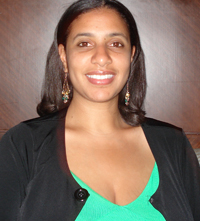Going back to school can be a jolt if you’ve been out for a decade or more. We got some tips from Zelon Crawford, director of Graduate Career Management and Corporate Relations at Temple University’s Fox School of Business and Management.
Would you recommend part-time MBAs over a full-time program for prospective students in their thirties or forties?
Full-time students tend to be younger. Some of the older students do get frustrated in this environment. I would recommend a part-time program to older students. Because of the varied age range of students, older students acclimate to the part-time or EMBA programs. I would encourage that.
Part-time students also do not want to leave their companies and want to navigate the corporate structure internally. Sometimes they want to do something more entrepreneurial, change industries or use the MBA as another credential. For the full-time program, there is a required internship in the summer. For older students who are currently working, they generally are not interested in participating in the internship component.
What should older students look for in an MBA program?
Although there is nothing definitely specific to age, older students may want to investigate informal tutoring services. Sometimes students find it difficult to adjust to statistics, economics, etc. Other courses are more straightforward, but for some courses older students may need extra help. However, this advice is relevant for other students of any age.
How do older students fare in the classroom?
Older students usually adjust really well after the initial scare. Some students have difficulty with statistics. It generally takes a little more time to ramp up to the amount of work and working in students groups. However, many difficulties that students experience are not necessarily attributed to age. Often, the more senior students will be the go-to people in class. Although these students are not always subject matter experts, many of their peers find that they have a range of experiences to share with other people in the classroom.
How much work experience is preferred for the average applicant?
Students with little work experience are harder to sell to an employer, who is usually looking for 4-5 years of experience. Often prospective students with this level of experience are not necessarily looking to come back.
Some schools do search for younger students with zero to two years or experience, but there will also be people with eight years of experience coming back to start a full-time MBA program. These students are often finding that it is difficult to switch careers, for example from engineering to operations or engineering to marketing. These career changes are often difficult to do without an internship, which is why some career switchers prefer the full-time MBA program.
 How do older students find a company that values older students’ experiences?
How do older students find a company that values older students’ experiences?
Find a place that has a good culture, where they appreciate your experience. If you go through a traditional MBA program, companies are generally looking for someone to start at an associate or manager level. It is often difficult to bring in an older person at that level. Often they will have someone 20 years old managing them at that level.
Older students should be proactive, doing an independent job search to find a position that matches what they are looking for. Sometimes older students end up working for their own company, a family-oriented company for awhile, or look into entrepreneurial experiences. Generally, older students should be searching outside of the structured recruiting process.
In the current economy, would you recommend older students to enrol in an MBA program as a path towards a career change?
Yes, there is definitely always value in obtaining an MBA, especially if you have the resources and time to do it, coupled with uncertainty about what will happen two years down the line.
Do you have any general advice for older prospective students?
I would just say to look into the program and to do research to make sure that the program is a good cultural fit for you. This is very important to your experience in the classroom. Find out what kind of companies recruit at the universities you are interested in and what type of career services are offered. Students should definitely look for a school that has a strong alumni network. Right now, it’s all about networking and connectivity.
Photo Courtesy: Zelon Crawford

Interesting interview. As an “older” student who attended a part-time program at a top-ten school, I want to make a couple of points regarding career-switching.
First, even though older students may not be as interested in internships, they should be aware that switching careers may require them to go the extra mile to prove their mettle; I knew several people who ended up quitting their jobs to do an internship in order to make contacts and gain practical experience in the industry they were trying to switch to. If you don’t do this, you may actually be at a competitive disadvantage compared to full-time students.
Second, it’s important to look into a school’s career services. Our school offered substantially less in the way of career services for part-time students, which came as a shock and disappointment to those of us who expected the same level of service.